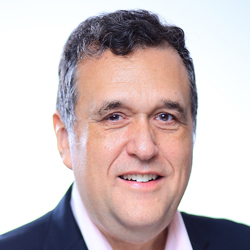The Growing Interest in MEM
MEM director Mark Werwath discusses the largest cohort in MEM history and whether he thinks that size will keep growing.
The advent of new technologies can bring both excitement and headaches to businesses. There is an increasing need for leaders who can integrate technical knowledge with business acumen to drive growth within organizations.
That increase is being reflected in Northwestern's Master of Engineering Management (MEM) program, which is designed for experienced STEM professionals who want to develop management and leadership skills while deepening their understanding of traditional and emerging technologies.
 This fall, MEM welcomed its largest-ever cohort of full-time students to campus. With that growing interest in mind, MEM director Mark Werwath sat down to discuss the MEM vs. MBA debate and what he thinks differentiates Northwestern's MEM program.
This fall, MEM welcomed its largest-ever cohort of full-time students to campus. With that growing interest in mind, MEM director Mark Werwath sat down to discuss the MEM vs. MBA debate and what he thinks differentiates Northwestern's MEM program.
The MEM fall cohort has 52 full-time students, the most ever for the program. Do you think that number will continue to increase moving forward?
We don't expect this size to grow in the future. While many other schools have much larger programs, and many schools within the Master of Engineering Management Program Consortium (MEMPC) are also seeing enrollment growth, at Northwestern we strive to maintain the small and personalized atmosphere that has helped us distinguish ourselves from other MEM and MBA programs. Our small size allows for personalized attention to the needs of the experienced engineer. Each engineering journey is different, and we want to work with our students to help them find and capture the best opportunities for curriculum, projects, internships, and full-time jobs.
What else do you think differentiates Northwestern's MEM program?
Much of our program is flexible and student-directed. MEM offers a wide variety of electives, and students can also take electives from the Kellogg School of Management, Farley Center for Entrepreneurship, and other graduate programs from across the University. MEM also has three graduate minors to choose from: cybersecurity, synthetic biology, and entrepreneurship.
What types of courses do MEM students typically take?
The MEM degree is tailor-made for the needs of the experienced engineering graduate student. We have advanced courses in technical product management — including courses in digital transformation, product lifecycle management, and project management — that supplement the base course in product management. In addition, we have a wide variety of entrepreneurship courses that are very practical in nature and focus engineers on building organic growth for companies as well as startup plans for entrepreneurs.
In your opinion, what differentiates MEM graduates from MBA graduates?
Our students graduate fulfilling a very specialized niche in the market: the experienced engineer who happens to have the training and education to enter into a technically oriented managerial role that frankly most MBA programs don't prepare students for. We equip engineers to become better technical leaders in industry, specifically on product development teams, project implementation teams, and in various operational roles that could one day lead graduates to developing their own startup operation.
What advice would you give a prospective student considering MEM?
Engineers considering MEM as a degree should consider when they want to study for such a degree. We recommend students have three years or more of significant engineering experience before pursuing their MEM degree.

